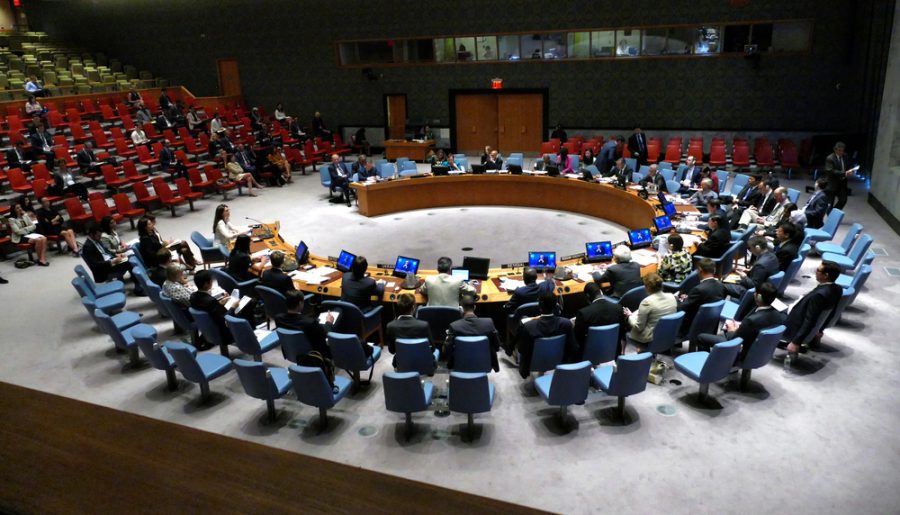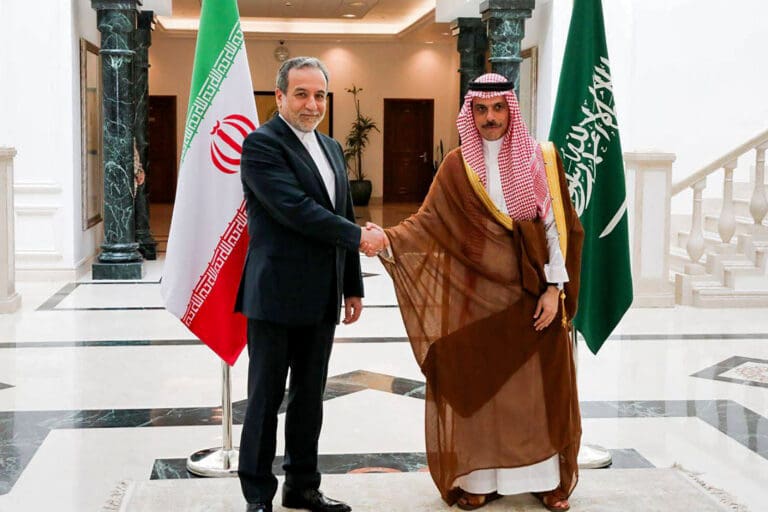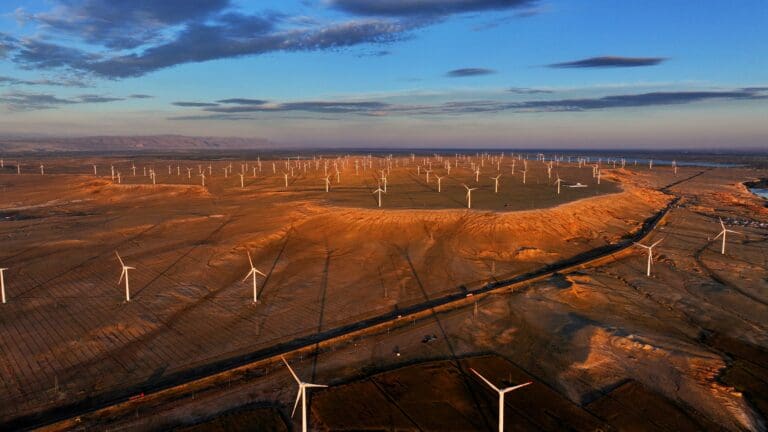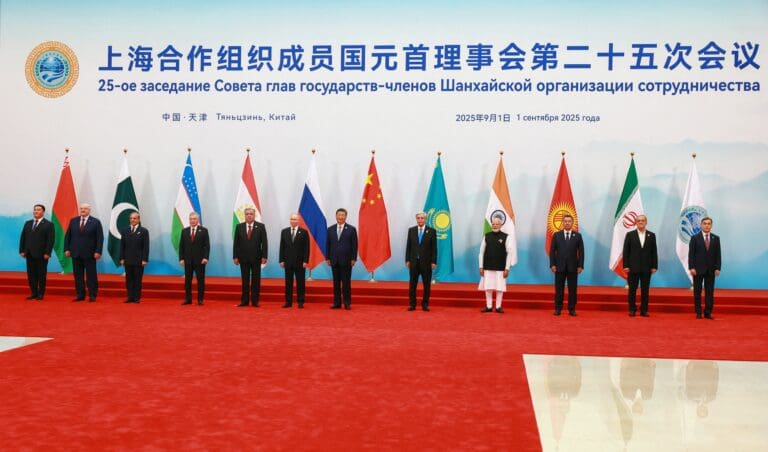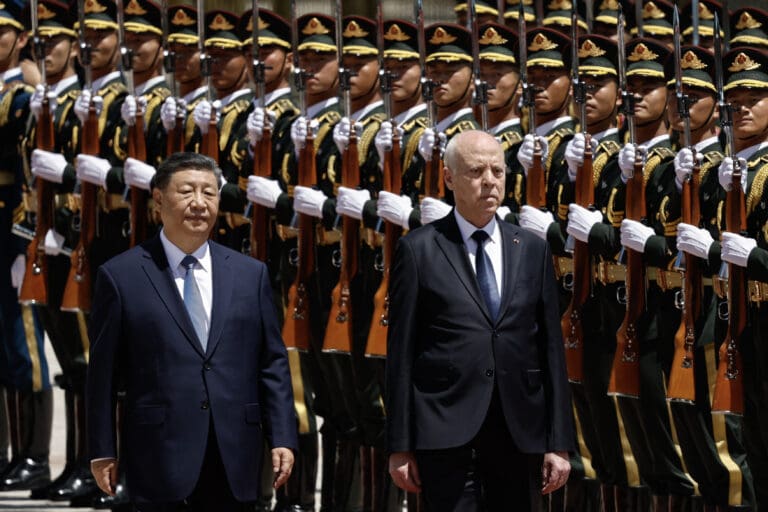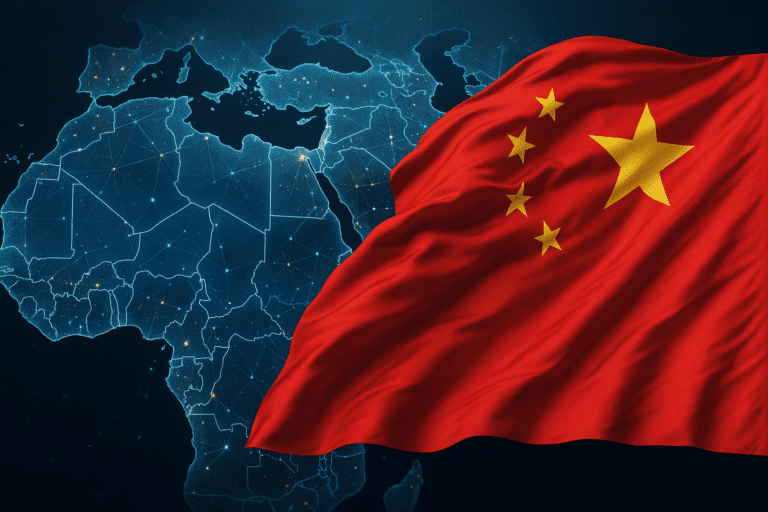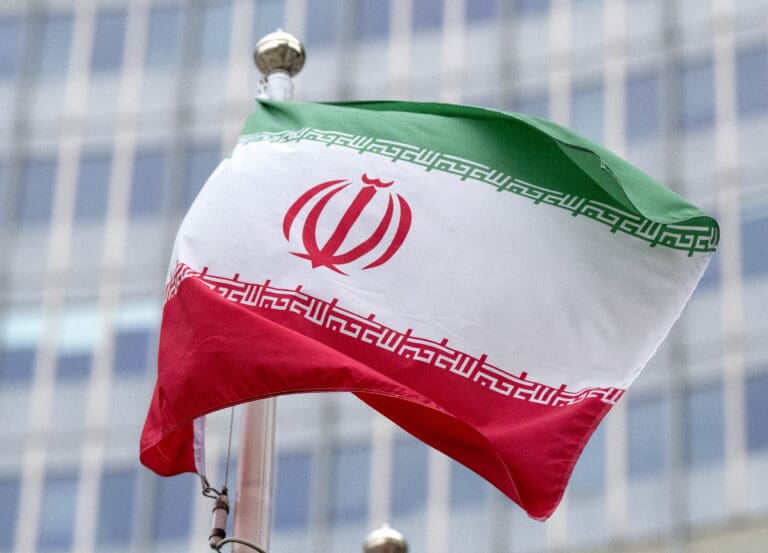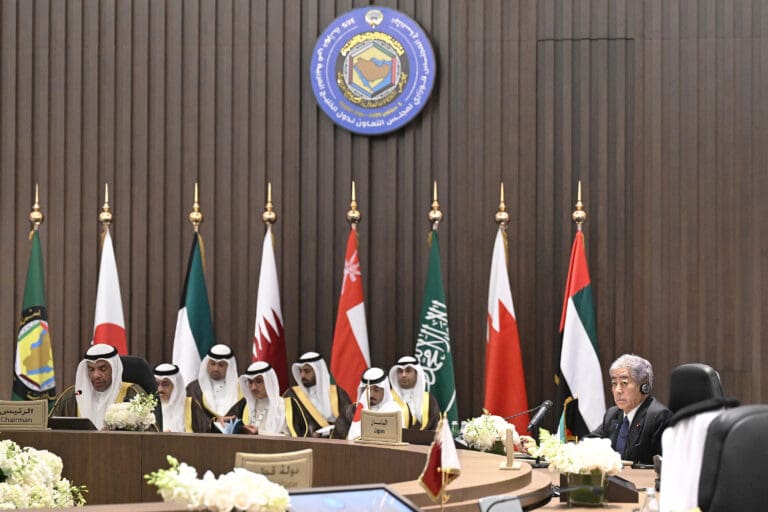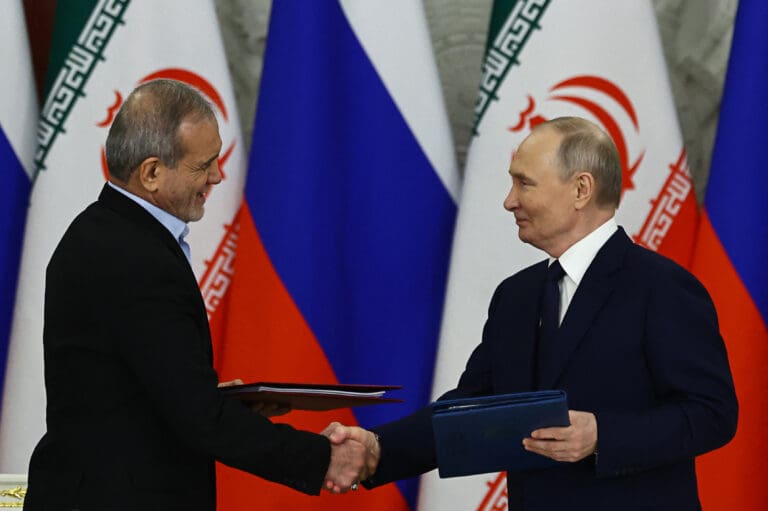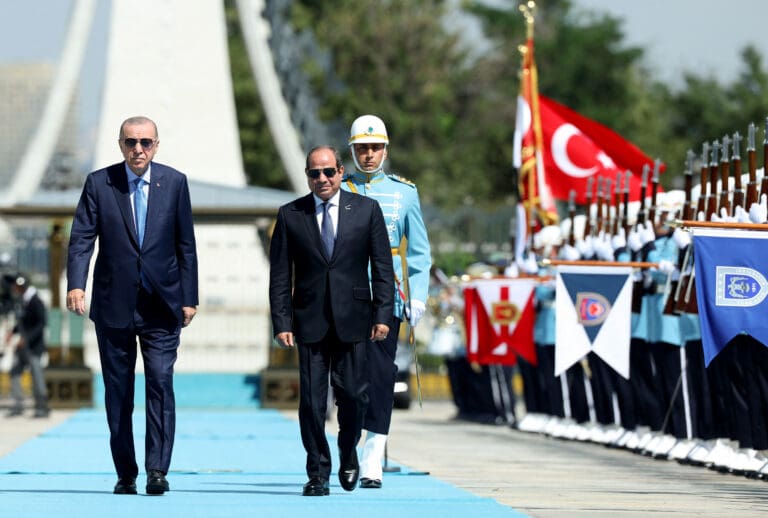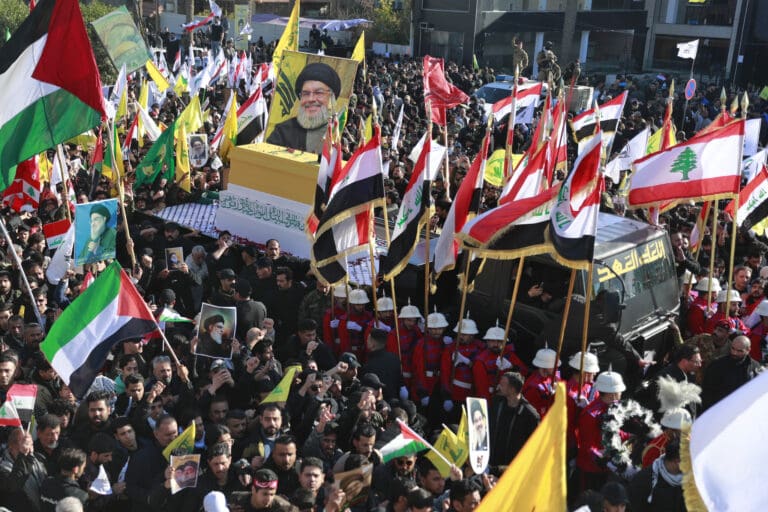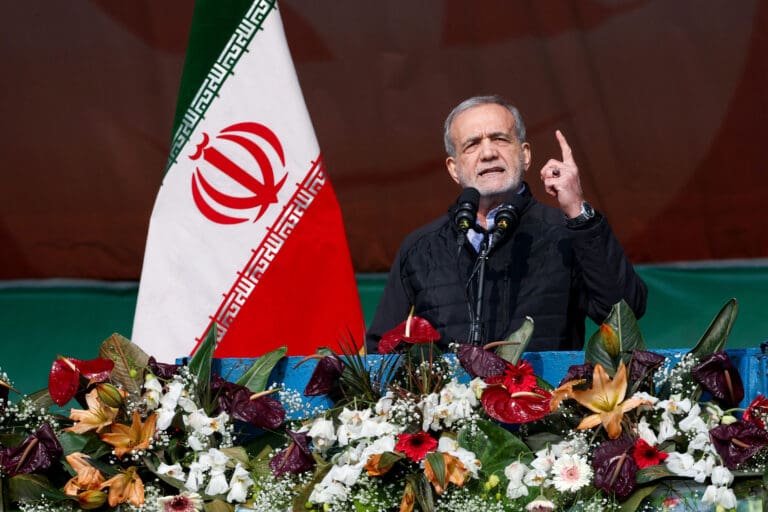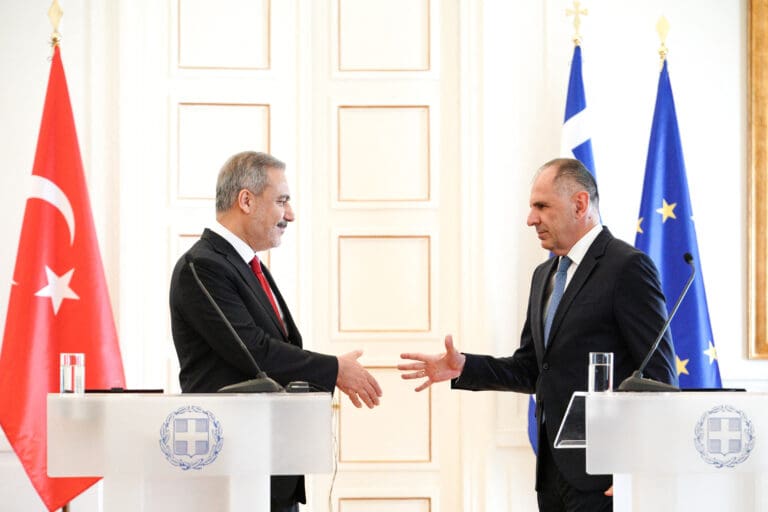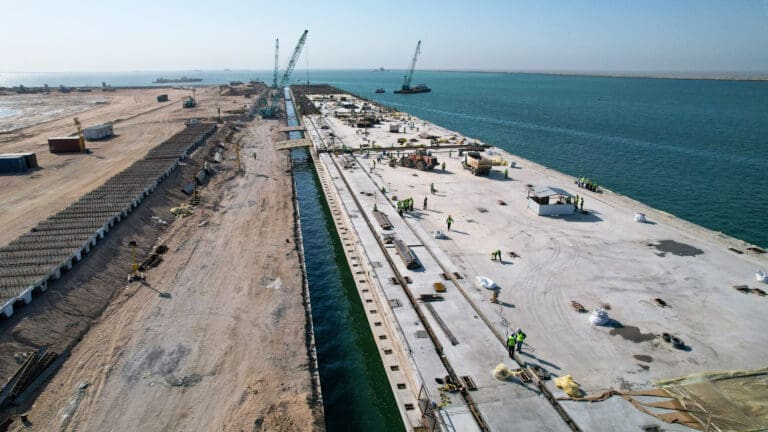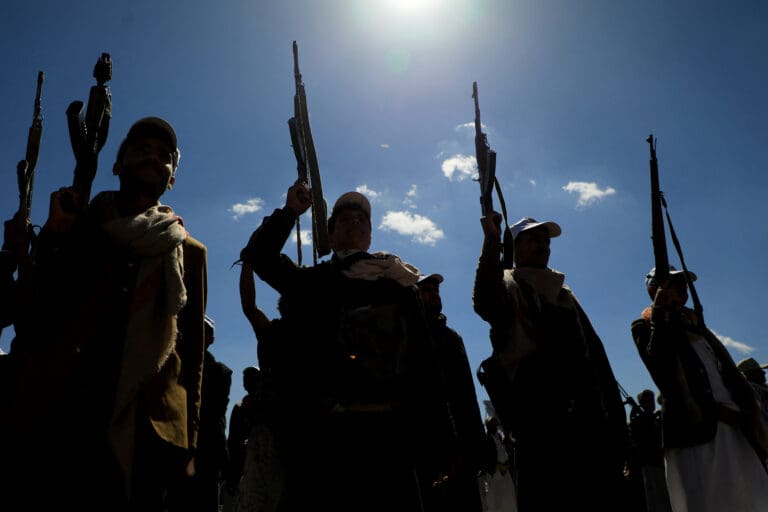
February 19, 2026
The Saudi–Iranian Détente: A Strategic Imperative
ME Council expert analysis on Saudi-Iran rapprochement, the GCC’s response to the June 2025 war, and Tehran’s push for strategic de-escalation.
learn more

January 26, 2026
The China-Gulf Green Rush: Fueling Renewable Energy Cooperation
China–Gulf renewable energy cooperation is evolving from hydrocarbon dependency to strategic interdependence, reshaping energy security, industrial policy, and global decarbonization pathways.
learn more

December 11, 2025
Can Multipolar Blocs Offer Iran a Way Out of Isolation?
Iran is facing intensifying pressures on the international stage. In June of 2025, Israel and the United States launched a military assault on the Islamic Republic’s nuclear program, even as talks on the program were underway between Tehran and Washington.
learn more

November 26, 2025
Navigating Rocky Waters: GCC Strategies for Maritime Security
The GCC maritime security strategy centers on strengthening naval capabilities, integrating AI-driven port technologies, and expanding partnerships to protect vital shipping routes. By combining fleet modernization with advanced surveillance systems and diversified global cooperation, Gulf states are building a more resilient and strategically agile maritime posture.
learn more

October 20, 2025
China in the Maghreb: Forging a New Era of Geopolitical Influence
China’s engagement with the Maghreb represents a strategic expansion of its Africa and Mediterranean policy, emphasizing infrastructure, resource security, and balanced diplomacy.
learn more

October 6, 2025
The Future of China-MENA Cooperation: Navigating Uncertainty and Competition
China-MENA relations are evolving against the backdrop of major regional and global challenges. Great power dynamics are unfolding across the Middle East, shaping regional players’ alignments and strategic considerations. Escalating geopolitical risks and growing trade wars are also exacerbating the global economic outlook, posing challenges to the MENA’s development and stability.
learn more

September 24, 2025
Iran and Nuclear Opacity: Strategic Ambiguity, Retaliation, and Leverage
On July 2, 2025, Iranian President Masoud Pezeshkian formally enacted a law suspending Iran’s cooperation with the International Atomic Energy Agency (IAEA). The move, approved unanimously by Iran’s parliament and endorsed by the Guardian Council, effectively halted inspections and reporting on Iran’s nuclear program by the agency “until the security of the nuclear facilities is guaranteed.” The legislation marks the most significant shift in Iran’s nuclear posture since the country’s accession to the Non-Proliferation Treaty (NPT) in 1970.
learn more

September 4, 2025
Reinvigorating Japan-GCC State Ties: The Case for Enhancing Top-Level Diplomacy
This policy note was completed by the author in August 2025 and therefore preceded the resignation of Prime Minister Shigeru Ishiba as President of the Liberal Democratic Party (LDP) in September. Introduction Since the turn of the millennium, the politico-economic nexus between the Gulf Cooperation Council (GCC) states and East Asia has significantly grown. Japan’s… Continue reading Foreign Policy Program
learn more

June 5, 2025
Strategic Transactionalism: The Iran-Russia Partnership
On January 17, 2025, Russian President Vladimir Putin and Iranian President Masoud Pezeshkian signed a Comprehensive Strategic Partnership Treaty in Moscow. The agreement is aimed at strengthening bilateral relations over the next 20 years. Reportedly delayed by the death of Pezeshkian’s predecessor Ebrahim Raisi in May 2024 and disagreements over details, the treaty came at a time of heightened geopolitical tensions for both countries and was hailed by officials in Tehran and Moscow as a sign of deepening strategic alignment.
learn more

May 15, 2025
Egypt and Türkiye: A Pragmatic Turn?
In February 2024, President Recep Tayyip Erdoğan visited Egypt for the first time since 2012, effectively ending more than a decade of political and diplomatic rupture between Egypt and Türkiye.
learn more

April 13, 2025
Hezbollah’s Defeat and Iran’s Strategic Depth Doctrine
In 2024, Iran’s efforts to gain strategic depth in the Middle East suffered a series of crippling blows. For decades, the Islamic Republic extended patronage to Hamas in the Gaza Strip and Hezbollah in Lebanon, and came to Bashar al-Assad’s aid from 2011 onwards to protect his regime in Syria against armed rebel groups. This strategy, initially aimed at expanding Iran’s regional influence, morphed into a network of deterrence to ward off U.S. and Israeli attacks on Iranian soil.
learn more

March 13, 2025
Iran’s Foreign Policy Under Masoud Pezeshkian: Tendencies and Challenges
Iranian foreign policy is an important topic that has been extensively studied, given the Islamic Republic’s strategic location in the Middle East and the Asian continent. This issue brief draws its importance from a tense regional and international climate, which has bred growing uncertainty about the behavior of states and the orientations of governments. The need to track Iranian foreign policy also mounts with every political transformation following elections, particularly Iranian presidential elections.
learn more

February 2, 2025
The Turkish-Greek Rapprochement: Time for European Engagement
This policy note argues that a Greek-Turkish thaw needs to be couched within a broader Türkiye-EU reset.
learn more

October 31, 2024
Iraq’s Development Road Project: A Path to Prosperity or Instability?
Iraq’s Development Road Project constitutes a bold and much-needed initiative for a country that has been plagued by decades of civil war, ethnic and religious conflict, and geopolitical tensions. The $17 billion Development Road Project (hereafter referred to as Development Road or the Project) aims to transform Iraq into a transport hub by connecting its southern hinterlands to the Turkish border in the north,1 and act as a major driver of economic prosperity in both Iraq and the wider region.
learn more

September 1, 2024
Beyond Mediation: Rethinking Peacebuilding in a Transnational Middle East
This issue brief examines the underlying challenges facing peacebuilding processes in the Middle East and the limitations of excluding non-state actors in these processes. This issue brief examines the underlying challenges facing peacebuilding processes in the Middle East and the limitations of excluding non-state actors in these processes.
learn more

